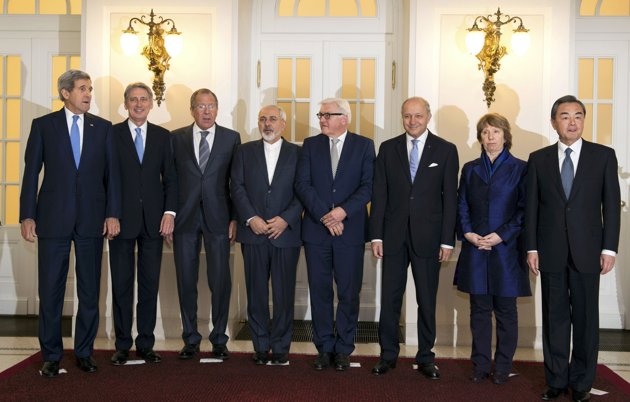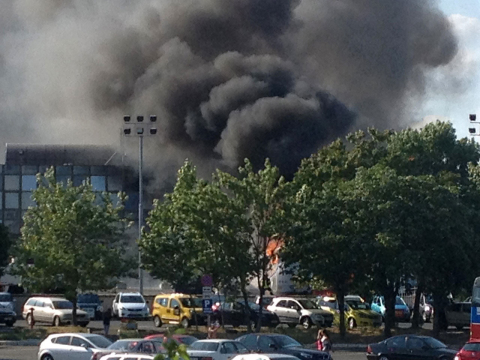[captionpix align=”left” theme=”elegant” width=”320″ imgsrc=” http://www.thedailystar.net/photo/2012/05/05/2012-05-05__international01.jpg” captiontext=”Egyptians protest against the military rule in Cairo’s Tahrir square May 4. Photo: AFP.”]
Last week marked a return to violence in the streets of Cairo as clashes between protesters and armed assailants erupted in the Egyptian capital. The story begins on April 27, when supporters of a recently banned presidential hopeful, Hazem Salah Abu-Ismail, began staging a sit-in near the Ministry of Defence in the eastern Cairo neighbourhood of Abbasseya. The popular ultra-conservative candidate was banned from running in the upcoming elections after documents from US officials revealed that his mother held US citizenship. Other groups soon joined the demonstrations demanding an end to military rule. The situation turned violent in the early hours of May 2, when protesters were attacked by a group of armed assailants, resulting in at least 11 deaths and hundreds of injuries, according to local doctors in the field. The deaths instigated violent clashes that continued for hours before Egyptian security forces intervened. Although it is not clear who is behind the assault, many protesters claim their attackers were security forces in civilian clothing.
Clashes between civilians and military authorities continued on Friday May 4, with hundreds of protestors demonstrating against the military’s failure to protect those that died during the previous demonstration. Friday’s protests resulted in at least 300 arrests, including a number of journalists. Military prosecutors have ruled that those arrested are to remain in detention for 15 days while their involvement in the protests is investigated. A nightly 11pm-6am curfew was put into place on Friday and remained in effect as of Sunday night.
Many involved in the protests see the military’s initial failure to intervene as a sign of compliance with the attacks, convinced the armed assailants were doing the bidding of the military. The military denies these charges, citing concern for violent escalation as their reason for not stepping in. It has been suggested that the bloodshed is being used as an excuse to delay the upcoming presidential elections, in which the Supreme Council of Armed Forces (SCAF)—the group charged with running the country since the fall of Mubarak in early 2011—is scheduled to hand over power to an elected civilian authority by June 30.
Until this past week there had been talk of “revolutionary fatigue” within the country, claims that people were simply losing the will to continue protesting. That hardly seems relevant anymore. The protests can be seen as a sign of continued distrust between protesters and the ruling SCAF. Despite this growing tension, military officials continue to declare their commitment to hold elections on May 23 and 24, and run-off elections on June 16 and 17 if there is no clear winner in the first round. However, many continue to insist that the military has a vested interest in continuing the violence as an excuse to enact emergency measures and renege on their commitment to hold elections in the coming weeks.
Upcoming Presidential Elections
[captionpix align=”right” theme=”elegant” width=”320″ imgsrc=” http://images.alarabiya.net/b8/8a/640x392_70736_211933.jpg” captiontext=”Major General Mokhtar al Molla (L) and Major General Mohammed al-Assar at a news conference by the Supreme Council for Armed Forces (SCAF) in Cairo. (Reuters)”]
Last week’s violence comes at a historic time for Egypt. The first presidential elections since the uprising that ended Hosni Mubarak’s 30-year rule are scheduled to be held in less than three weeks. Twenty-three candidates submitted applications for a spot on the presidential ballot, but only 13 were approved by the ruling SCAF. Before lasts week’s clashes, front runners include Amr Moussa, former head of the Arab League and the most prominent candidate running on an entirely secular platform, and Abdul Moneim Aboul Fotouh, a former member of the Muslim Brotherhood, which is a moderate Islamist political party and currently the most powerful force in Egyptian politics. The Muslim Brotherhood’s official candidate is now Mohammed Morsi, who was drafted in after it became clear their first choice candidate would not be approved to run.
Commentators are now arguing that last week’s clashes have damaged the support of Islamist parties and strengthened the chances of candidates running on a secular platform, most notably Amr Moussa. Although the sit in was originally organized by the ultra-conservative Salafist group, it is believed that all Islamist parties—including the popular and more moderate Muslim Brotherhood—will be affected by last week’s events. Although there is a great amount of disdain towards the Supreme Council of Armed Forces due to its ties to the old regime, the army is a widely respected institution within Egypt. The coming weeks will be a crucial point in Egypt’s attempted transition to democracy. It remains to be seen what the long-term effect of last week’s clashes will have on the presidential candidates and the elections themselves.



